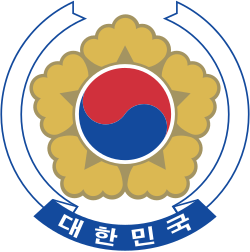| | |||||||||||||||||||||||||||||||||||||
| |||||||||||||||||||||||||||||||||||||
All 300 seats in the National Assembly 151 seats needed for a majority | |||||||||||||||||||||||||||||||||||||
| |||||||||||||||||||||||||||||||||||||
| This article is part of a series on |
 |
|---|
Legislative elections are to be held in South Korea no later than 12 April 2028. All 300 members of the National Assembly will be elected, 254 from first-past-the-post constituencies and 46 from proportional party lists.
